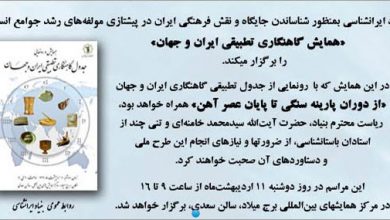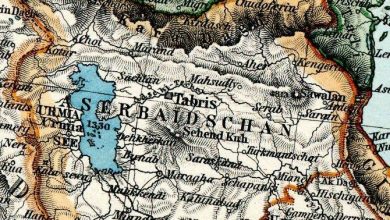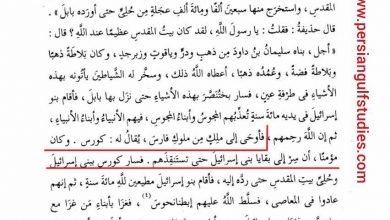Getting to know Zakaria Razi
Mohammad Zakaria Razi Iranian physician, philosopher and chemist who wrote lasting works in the field of medicine, chemistry and philosophy and as the discoverer of alcohol and sulfur essence (sulfuric acid) is famous.
Iranian physician, philosopher and chemist who wrote lasting works in the field of medicine, chemistry and philosophy and as the discoverer of alcohol and sulfur essence (sulfuric acid) is famous.
His name is Muhammad, his father's name is Zakaria, and his nickname is Abu Bakr. According to Abu Rihan Biruni, he was in Sha'ban in the year 251 AH (865 AD) He was born in Ray and spent his childhood, adolescence and youth in this city. He has such a reputation that he played the oud in his youth and sometimes wrote poetry. Later, he worked as a goldsmith and after that he turned to alchemy, he learned the science of medicine at an advanced age. Biruni believes that he was initially engaged in alchemy, and after his eyes were damaged by working with strong substances, he turned to medicine to treat his eyes..
Razi traveled to Baghdad to learn science and stayed there for an unknown period of time and began to study science and then became the director of Motazadi Hospital.. After the death of Motazad Khalifa Abbasi, he returned to Ray and became the head of the Ray hospital and was busy treating patients in this city until the end of his life.. Razi became blind at the end of his life, there are different narratives about the cause of his blindness, Bouruni considers the cause of Razi's blindness to be constant work with chemicals such as mercury vapor..
Ethics and actions of Zakaria Razi:
Razi was a cheerful man and diligent in his studies. He paid special attention to the patients and did not stop them until the disease was diagnosed, and he was very kind to the poor and needy.. Unlike many doctors who were more willing to treat kings, princes and elders, Razi dealt more with ordinary people..
Razi was a skilled physician and a great physician and had a great reputation in his time. Razi is one of the doctors, some of his ideas are used in the treatment of modern medicine, especially in the treatment of patients with liquids and food.. Doctors and researchers have used Razi's books and treatises for many centuries. Ibn Sina considers Razi to have a very high position in medicine, and it can be said that he used Razi's contents a lot to compile the law..
Razi is the first person to distinguish between smallpox and measles.
Razi considers extravagance in medicine very harmful, he believed that it is possible to treat with food and otherwise with a single and simple medicine or with a compound medicine.. He tells a secret: "Whenever the doctor succeeds in treating diseases with food, he has reached happiness.".
Razi started studying chemistry before medicine and left impressive works in it. He was the first person who divided the bodies into three groups: solid, plant and animal. He is the founder of modern chemistry, despite the fact that he believes in alchemy. Although some contemporary alchemists in Iran call a kind of incomplete transformation of metals into gold "secret transformation".. But since Razi is considered from the point of view of the next stages of science, we should consider him as one of the founders of chemistry." In his "Secrets" book, we read that materials are divided into metal and semi-metal (According to him, body and soul) It divides and if it makes mistakes in this field, there is no escape from it. For example, mercury is called a pseudo-metal, while it is now obvious that mercury is a metal.
Many discoveries have been attributed to Razi, including:
– Razi is the discoverer of alcohol.
– From the effect of alkaline environment on pylite ore, it provided sulfuric acid, and with sulfuric acid, it was easy to obtain other acids.
– From the effect of lime water on Noushador (Ammonium chloride)Get hydrochloric acid.
– By reacting vinegar with copper, he prepared copper acetate or rust, which was used to wash the wound.
– From burning arsenic, it provided arsenic oxide or rat death
– For the first time, he prepared citric acid from oranges.
– He is the first doctor who made poisonous alkaloid drugs and used them to treat his patients.
Philosophy:
A secret of the common philosophical thoughts of his era, which is Aristotelian philosophy- He was a Platonist, he did not follow and had his own ideas, as a result of which he was slandered by philosophers of his time and after him.. Also, the opinions he expressed about religions caused him to be excommunicated and therefore most of his works in this field have been lost.. Razi can be called the most prominent figure of rationalism and empiricism in Iranian and Islamic culture. He was inclined towards Socrates and Plato in his philosophy, and influences of Indian and Manichean thoughts can be seen in his philosophy.. However, he never succumbed to the thoughts of celebrities.
Razi's works:
Al-Hawi • Al-Kanash al-Mansouri • Al-Murshid • Man Lai Hazara Al-Tabib • Al-Jadri and al-Hasbah book • Defid al-Mazar al-Aghaziyeh • Al-Abdal and others
Secret speeches:
– "If everyone could use their talents properly, the world would be the promised paradise that everyone wants."
– "Religions are the main cause of wars and opposition to philosophical ideas and scientific research. The books that are known as heavenly holy books are worthless and the works of people from ancient times such as Plato, Aristotle and Socrates have served humanity more important and useful.
– "Experience is better than medicine."
Thanks to the great efforts of Razi in the field of pharmaceuticals on the fifth day of Shahrivar month (August 27)The day of commemorating Zakaria Razi, the great Iranian chemist, and the day of pharmaceuticals is named.
for download The book of Zakaria Razi Click on the link below






